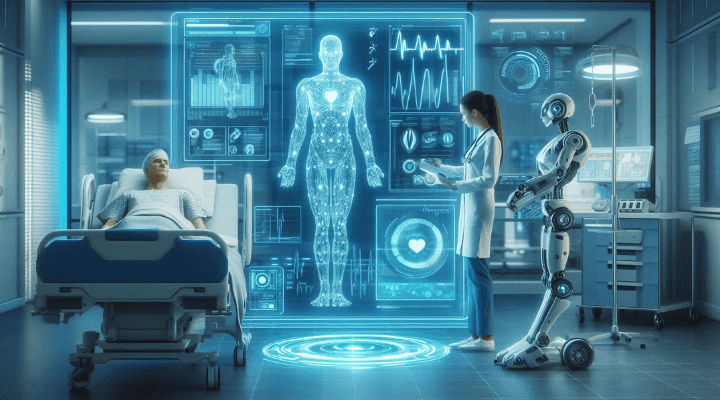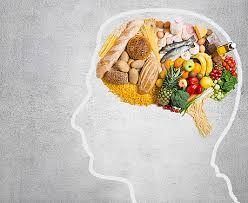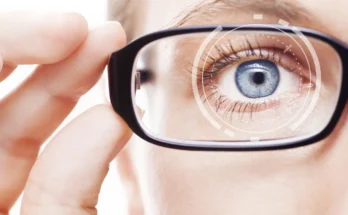Artificial Intelligence is changing the way healthcare operates. It is changing diagnostics, and treatments and helps in bringing innovations in healthcare. Recent developments in medicine and health show that AI will be around for a long time. It will have a big impact in this field. Let’s go through this article and understand how it is shaping the future of health and medicine:
1. Enhanced Diagnostics and Medical Imaging
The diagnostic centres and platforms have started using AI in diagnostics, particularly in analyzing medical images. Advanced algorithms can detect diseases like cancer, heart conditions, and neurological disorders with good accuracy.
Platforms like Diagnexia and Patholytix use AI to assist pathologists, improving diagnostic speed by up to 40%. AI tools help detect abnormalities in medical scans faster than human eyes. These platforms promote themselves, saying that these are developed for the pathologists who don’t have to master AI for it.
Similarly, there are AI-powered tools that assist radiologists in identifying patterns in X-rays, CT scans, and MRIs. For example, AI algorithms in NHS hospitals in the UK read scans and predict illnesses. This greatly improves efficiency.
2. Predictive Analytics for Proactive Care
AI can analyze patient data to identify patterns and predict health risks. This allows for preventive measures before symptoms can turn into a deadly disease.
For example, predictive analytics helps assess the chances of conditions like sepsis or heart failure. This allows for early interventions. AI can detect these predictions and can suggest medicinal treatments for these conditions.
3. Personalizing Treatment Plans
AI-driven platforms create personalized treatment plans based on a patient’s genetic conditions, lifestyle, and medical history In home care.
By understanding a patient’s unique profile, AI can recommend necessary therapies that can reduce the side effects and bring improvements. This is particularly useful in cancer treatments, where precision medicine has shown significant promise.
4. Accelerating Drug Discovery
The way drug discoveries used to happen, it used to take lots of years and money. AI, on the other hand, is helpful in bringing these costs down and shortens this timeline by simulating molecular interactions and predicting drug efficacy.
For example, Exscientia created a drug molecule using AI. It entered clinical trials very quickly. This shows how AI can change pharmaceutical research.
5. AI-Powered Virtual Health Assistants
AI is enhancing patient accessibility through virtual health assistants and chatbots. These tools can answer basic health questions, schedule appointments, and provide follow-up reminders.
For example, chatbots like Woebot offer mental health support, while AI assistants integrated into hospital systems streamline administrative processes, improving patient satisfaction. This helps in catering to the rise in medical help because the support was limited.
Understanding how Generative AI powers virtual assistants and chatbots can be crucial for healthcare professionals. Enrolling in Generative AI course can provide the expertise needed to create and deploy these cutting-edge tools effectively.
6. Streamlining Operations in Healthcare
AI is reducing the administrative burden on healthcare professionals, enabling them to focus more on patient care.
The tools like Suki AI assist physicians by automating medical transcription and record-keeping, reducing documentation time significantly. This alleviates burnout and improves overall efficiency.
7. Tackling Global Healthcare Challenges
AI is addressing issues like the global shortage of medical professionals by automating routine tasks and supporting decision-making. In regions with limited resources, AI can bridge gaps by providing diagnostic and treatment insights (Source: LinkedIn)
8. Ethical and Regulatory Considerations
While the benefits of AI in healthcare are immense, challenges are still there:
- Data Privacy: Ensuring sensitive patient information is secure is a priority.
- Ethical Use: AI algorithms must be transparent and free of biases.
- Regulation: Developing standardized frameworks is essential to ensure AI’s safe integration into healthcare systems.
Why Learning AI is Crucial for Healthcare Professionals
As AI continues to transform medicine, understanding its principles and applications is becoming essential for healthcare professionals. Great Learning, a leading education platform, offers a tailored MIT AI Certificate Course in collaboration with MIT PE to bridge this knowledge gap. This courses focus on:
- Understanding AI algorithms and tools.
- Practical applications in AI.
- Hands-on experience with healthcare-specific AI case studies.
By making AI learning accessible and practical, Great Learning ensures that professionals are equipped to harness this transformative technology.
The Road Ahead
AI in healthcare is still in its early stages; it is yet to make progress but the progress is undeniable. With Generative AI, predictive analytics, and chatbots, AI will change how we care for patients. Its support in diagnostics and medicine is commendable and is becoming more reliable and accessible year by year. However, there are still many challenges ahead.
Healthcare professionals and students must embrace AI to stay ahead in this rapidly evolving field. Platforms like Great Learning are making it easier for medicine professionals to acquire these cutting-edge skills and contribute to the future of medicine. Advanced education, such as a PGDM in AI, can prepare professionals to lead in this transformative era. Together, AI and human guard rails can revolutionize healthcare.
AUTHOR BIO
Akriti Galav is an experienced Content Strategist at Great Learning, bringing over 8 years of expertise in content marketing and digital strategy. With a passion for crafting impactful narratives, she combines her deep understanding of digital marketing with meticulous research to create content that resonates with audiences and delivers value.




